Lucy Powell says Labour must stand by promise not to raise key taxes

Labour should stand by its manifesto commitment not to raise income tax, national insurance or VAT, its deputy leader, Lucy Powell, has said in a challenge that will put pressure on Rachel Reeves.With the Treasury examining whether to raise income tax to plug a £30bn fiscal hole, Powell said it was “really important we stand by the promises we were elected on and do what we said we would do”.She said: “Trust in politics is a key part of that because if we’re to take the country with us then they’ve got to trust us and that’s really important too.We should be following through on our manifesto, of course.There’s no question about that.
”Powell made the significant intervention on BBC Radio 5 Live, calling at the same time for the two-child benefit cap to be lifted in full rather than softened.She said she wanted a “budget of fairness”, with more money being put into people’s pockets, rather than less, and one with a “strong Labour story about how we are rewiring the country in the interests of the many not just the few”.Her remarks are likely to be uncomfortable for the chancellor and Keir Starmer as both have in recent weeks declined to repeat their commitments to stand by the manifesto pledge on tax.The government has been looking at the possibility of raising income tax as a way of giving a substantial boost to the public finances and leave an extra buffer for potential financial shocks.Powell’s spokesperson later clarified that she would support the chancellor whatever the decisions made in the budget, which will be taken by Reeves and Starmer.
A spokesperson for Powell said: “As Lucy made clear in the interview the chancellor and prime minister make decisions on the budget in the round.As the chancellor said this week the context for this budget is particularly difficult and Lucy will continue to support them on these issues.”Downing Street had no comment on Powell’s remarks.Reeves gave a speech this week that was widely interpreted as making the case for tax rises to allow greater investment in public services.“It is important that everyone – the public and politicians – understands that reality.
The less we spend on debt interest, the more we can spend on the priorities of working people … our NHS, our schools, our national security … the public services essential to a decent society and a strong economy,” she said.However, it is still not certain that Reeves will opt for a rise in income tax, which could raise £7bn, instead of an array of smaller tax measures.The final forecasts have not yet been presented to the chancellor, meaning the decisions are still to be taken.Powell’s intervention before the budget is a sign that she is willing to question the dominant thinking in Downing Street, after she won the deputy leadership election on the back of promising not to “sugar-coat” her views.She is in a unique position to challenge Starmer and Reeves as the party’s deputy leader, who was chosen last month by the membership to replace Angela Rayner ahead of the government’s choice, Bridget Phillipson.
Powell had previously been pushed out of her job as leader of the House of Commons by the prime minister at the reshuffle after the summer recess and is not bound by collective responsibility.The deputy leader’s statements echo the concerns of a number of Labour MPs who are privately worried about the impact on trust of breaking a manifesto pledge and Reeves’s own claim last year that she would not come back to the public with further tax rises.Cabinet ministers appear to be largely resigned to the idea of raising income tax, rather than fiddling with a large number of small tax measures, having bought the argument that it is better to make a big tax-raising move relatively early in the parliament.However, some backbenchers are concerned that it is a “dangerous moment” for the government to be seen as going back on a promise and that it may not be forgiven by the electorate.“The two major reasons people are leaving us is they perceive we broke our promises and secondly because of the cost of living.
This entrenches that,” one Labour MP said.“Emotionally, colleagues don’t feel the same way about this as with welfare.But before Rishi [Sunak, the former Conservative PM] raised national insurance in 2021, it ‘polled’ well.Not when it hit the ground.But it’s hard to go to chancellor and say don’t do X when everything has to add up.
”In her BBC interview, Powell also said the two-child benefit cap “should be lifted in full” as a matter of urgency to deal with “grotesque levels” of child poverty.“Every year that passes with this policy in place, another 40,000 minimum, 40,000 children, are pushed into deep levels of poverty as a result of it and that’s why it is urgent that we do lift it and we lift it in full.”Reeves is believed to be looking at only partly lifting the two-child benefit cap affecting universal credit, after the government previously hinted earlier in the autumn that it would be scrapped entirely.Instead, she is thought to be considering smaller measures that would go some way to blunting its impact.The Guardian first reported last month that Reeves was considering raising income tax to help reduce a shortfall, expected to be between £20bn and £30bn, after a bigger-than-expected downgrade in productivity forecasts.
However, government insiders believe the economic landscape to be less gloomy than predicted, which may allow Reeves to avoid the problem of breaking the manifesto pledge,While the Office for Budget Responsibility’s productivity downgrade has created a headache, they point out that a fall in debt financing costs and more people coming into the jobs market may help limit the damage,
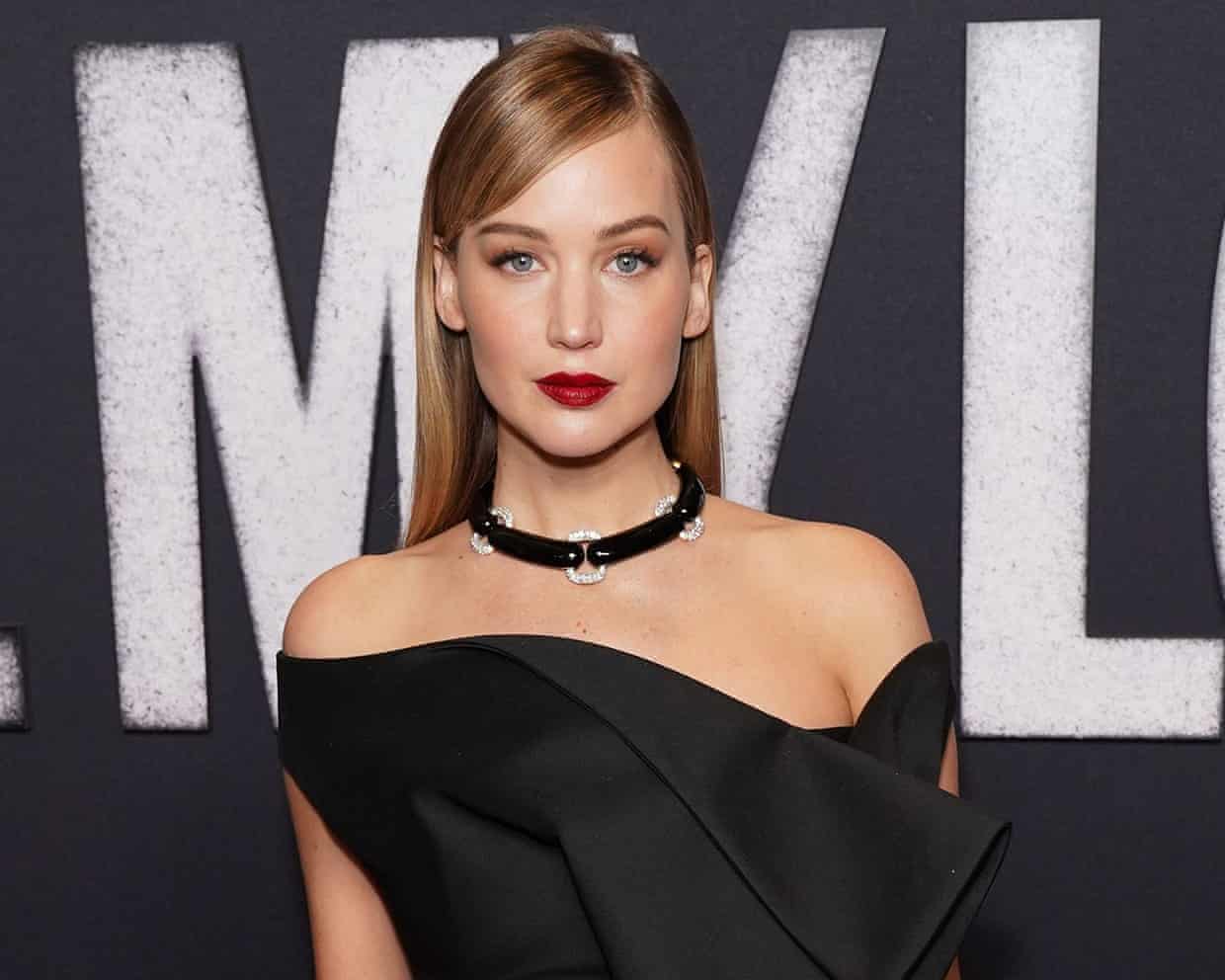
De Niro to JLaw: should celebrities be expected to speak out against Trump?
If you were hoping Jennifer Lawrence might be able to tell you who to vote for and why, you’re in for some disappointment. “I don’t really know if I should,” the actor told the New York Times recently when asked about speaking up about the second Trump administration – and she’s not the only one. “I’ve always believed that I’m not here to tell people what to think,” Sydney Sweeney recently told GQ, after a year in which she was the subject of controversy over a jeans ad and a possible Republican voter registration. This marks a shift from Donald Trump’s first term, when more celebrities seemed not just comfortable speaking out against the administration, but obligated to do so. Now voters will no longer be able to so easily consult with Notes-app-made posts on Instagram to decide who and what they care about before they head to the polls
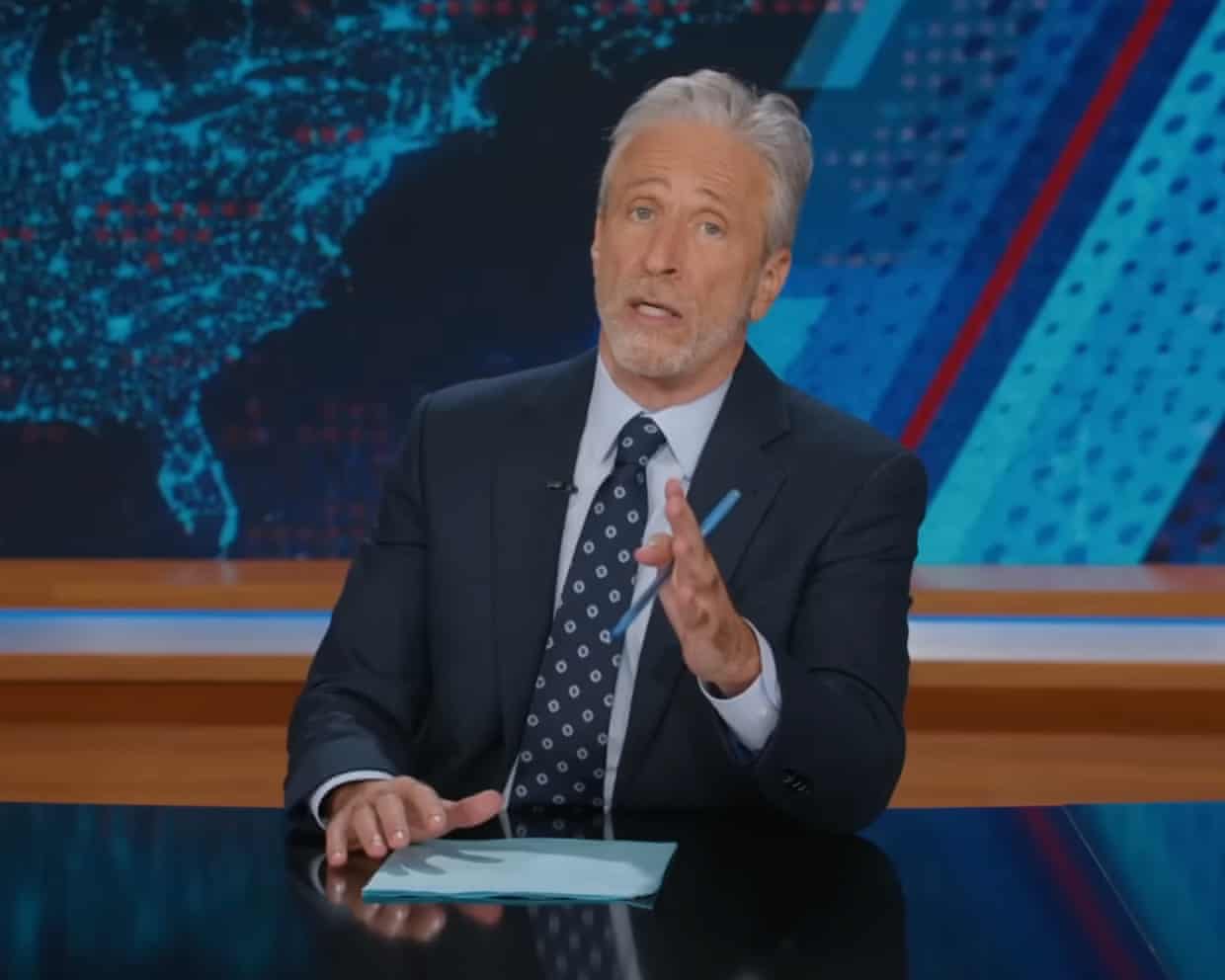
Jon Stewart on Trump’s Gatsby party: ‘The theme was apparently gross income inequality’
Late-night hosts reacted to Donald Trump Great Gatsby-themed Halloween party held just hours before millions of Americans lost their food stamp benefits.On the Daily Show, Jon Stewart mocked House speaker Mike Johnson’s insistence that Trump is “desperate for Snap benefits to flow to the American people”, even as his administration let the largest food assistance program in the nation, supporting around 42 million Americans, lapse during the government shutdown.Stewart played a clip of Johnson assuring that Trump “is a big-hearted president”.“Is he? Big-hearted? Loves us?” Stewart replied. “Because again, and maybe I’m misinterpreting it, but he did just recently dump diarrhea on all of us
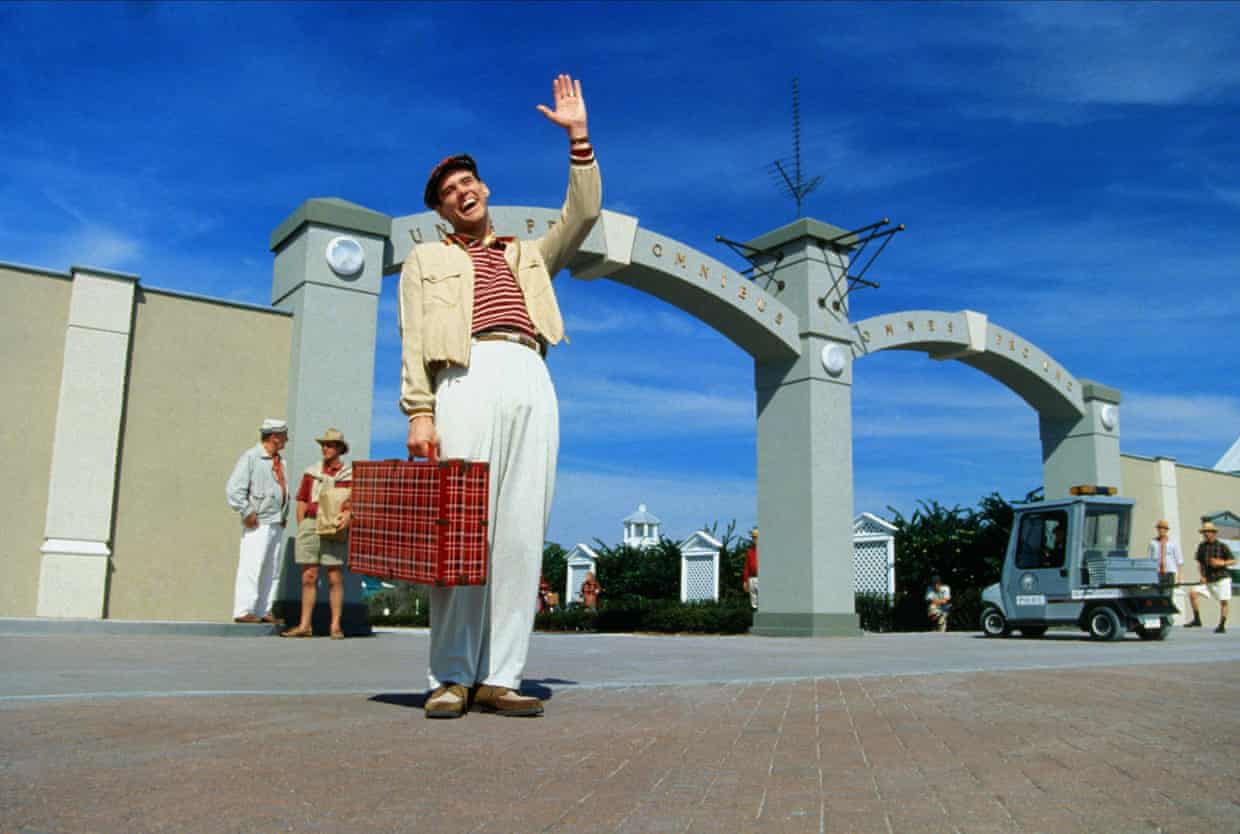
Three decades later, The Truman Show feels freshly disturbing – and astoundingly prescient
The great Australian director Peter Weir is perhaps underrated as an auteur, simply because his filmography doesn’t follow any thematic or stylistic principle; each of his contributions feels like a complete work of art unto itself. While Picnic at Hanging Rock remains his finest work, his foray into Hollywood culminated in the utterly transfixing, intermittently horrifying Jim Carrey vehicle The Truman Show. Almost 30 years after its theatrical release, the film has only grown in stature and prescience.Ostensibly a dark satire on voyeurism and the inexhaustible manipulations of the media, The Truman Show predated the television juggernaut Big Brother by a single year, and it’s hard not to see something causal in that. Both are about surveillance and the murky line separating reality from entertainment; both involve hidden cameras watching the participants’ every move

Big trouble in ‘Little Berlin’: the tiny hamlet split in two by the cold war
A new museum in Mödlareuth tells the story of how a settlement of only 50 people straddled Bavaria in West Germany and Thuringia in the eastA creek so shallow you barely got your ankles wet divided a community for more than four decades. By an accident of topography, the 50 inhabitants of Mödlareuth, a hamlet surrounded by pine forests, meadows and spectacular vistas, found themselves at the heart of the cold war. They had the misfortune to straddle Bavaria, in West Germany, and Thuringia in the East, a border that was demarcated first by a fence and then by a wall. American soldiers called it Little Berlin.Months after their own wall was breached, and even before their country had reunified in 1990, a group of local people set about memorialising their history
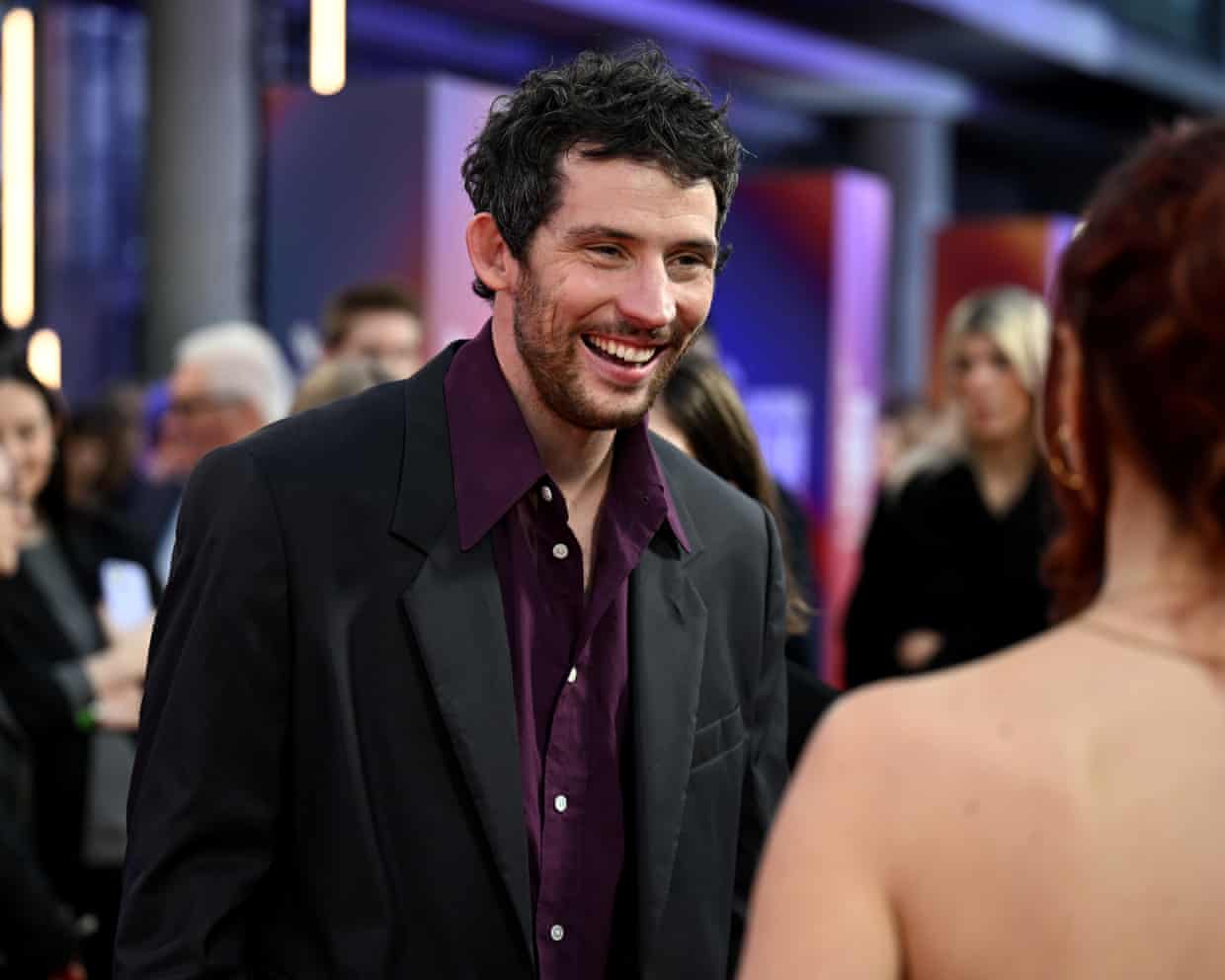
Josh O’Connor: the shape-shifting star who became cinema’s most wanted
He came to prominence with his portrayal of Prince Charles in The Crown, and now it seems that Josh O’Connor might be primed for his own coronation.The British actor is in three major films between now and January – better known to film-lovers as awards season.He leads Kelly Reichardt’s art heist drama Mastermind, which opened in UK cinemas last week; stars opposite Paul Mescal in the period romance drama The History of Sound; and takes the central role in Wake Up Dead Man, Rian Johnson’s third instalment in the Knives Out mystery franchise.There’s also the persistent industry chatter that he’s among those being considered for the next James Bond. “This Is The Autumn Of Josh O’Connor,” declared Vogue recently, while GQ wondered, “How Josh O’Connor Became the Thinking Man’s Leading Man”
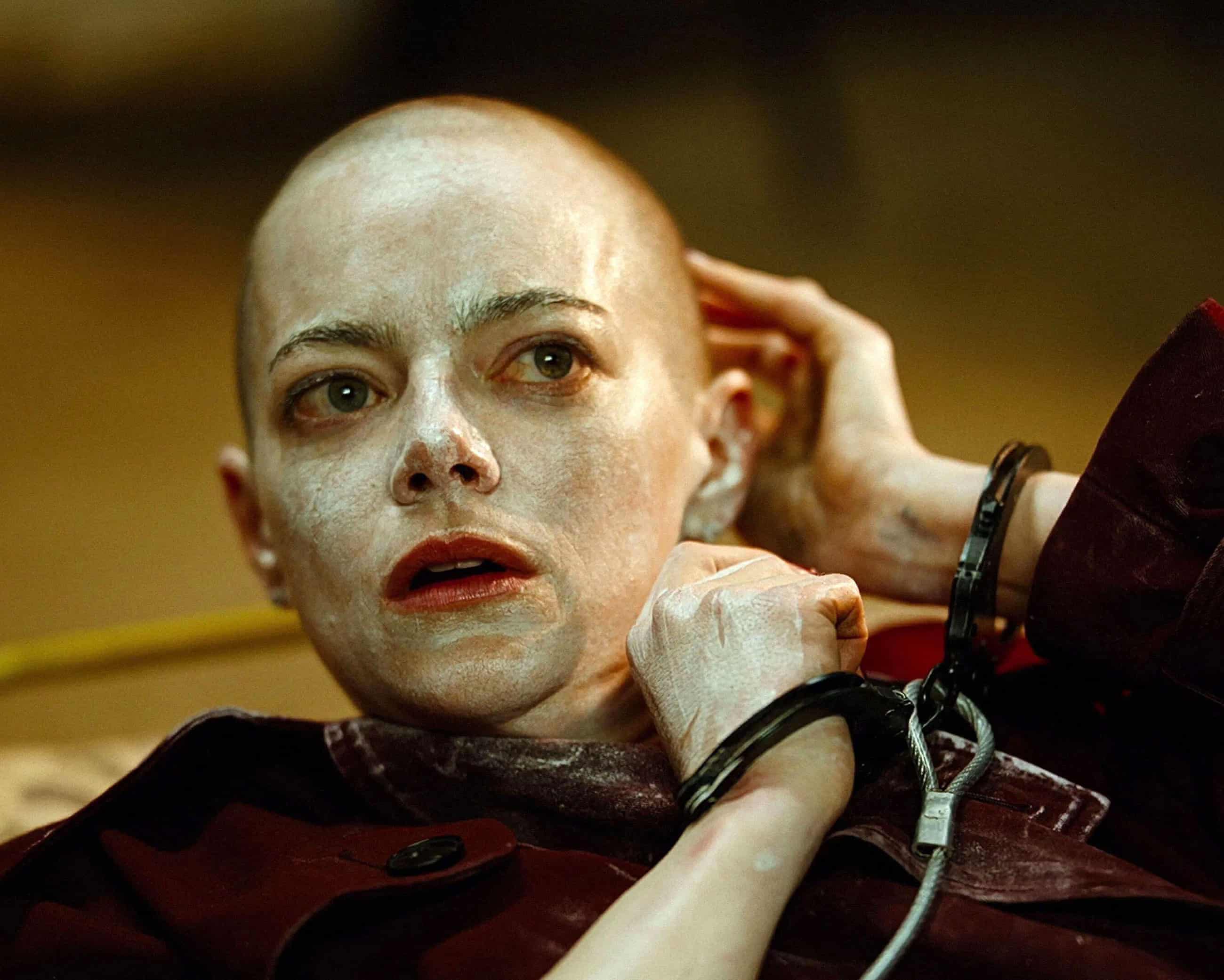
From Bugonia to All’s Fair: your complete entertainment guide to the week ahead
Yorgos ‘Poor Things’ Lanthimos reunites with Emma Stone for a weird kidnapping thriller, while Kim Kardashian and Sarah Paulson get the right side of the law in Ryan Murphy’s LA storyBugoniaOut now One of the wildest directors of the 21st century, Yorgos Lanthimos returns with something that you might not expect from him: a remake. But this isn’t a standard Hollywood cash-in; it’s a black comedy that sees Emma Stone and Jesse Plemons go to some truly crazy places in a story of two conspiracy theorists who kidnap a CEO.RelayOut now Riz Ahmed plays the guy you call when a dodgy corporation and an individual with the potential to expose their corrupt practices need to talk. Basically he’s a “fixer”, who can broker payoffs for eye-watering amounts, while keeping a piece of the pie for himself – but is he about to bite off more than he can chew? The new thriller from David Mackenzie (Hell Or High Water).Palestine 36Out now The Palestinian entry for the best international film at the Oscars, this historical drama from Annemarie Jacir explores events leading up to the Arab revolt of 1936, when Palestinians tried to gain independence from British colonial rule

Why doesn’t Lammy just bring in a new policy of accidentally jailing people? | John Crace

Reform UK suspends another member of Kent county council
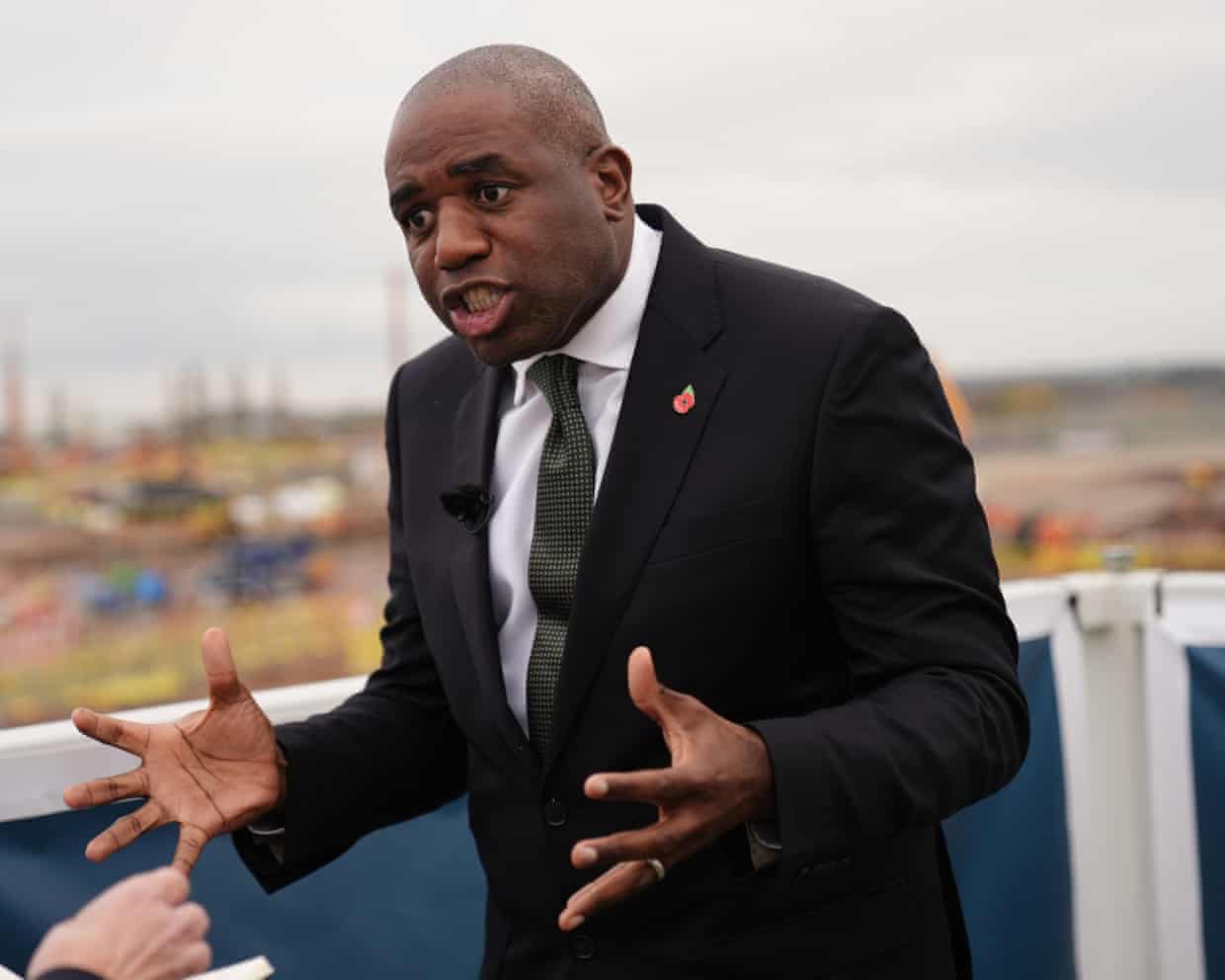
Lammy says he was not ‘equipped with the details’ when facing questions on mistaken prisoner release at PMQs – as it happened
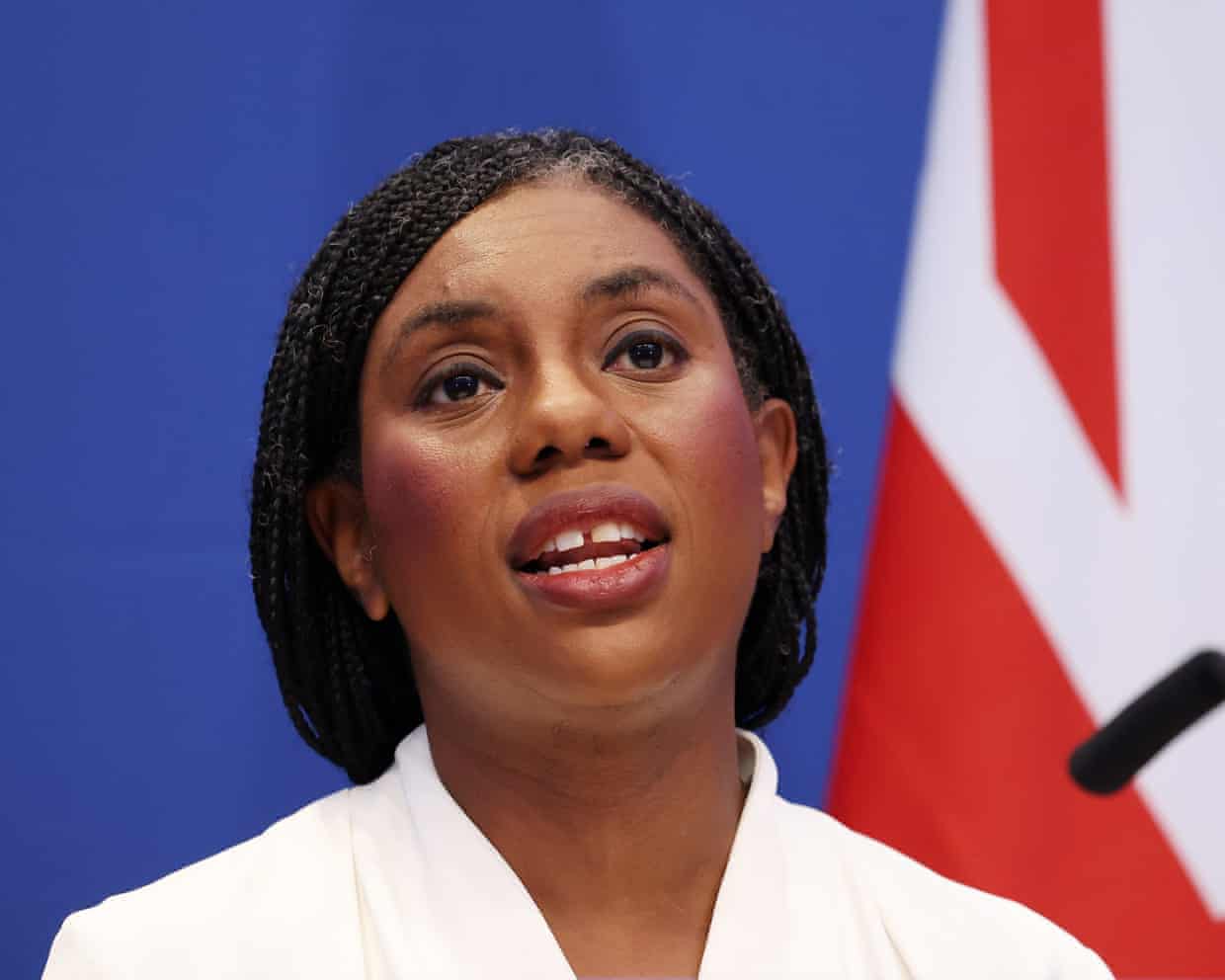
Badenoch accused of ‘interfering’ in lobbying scandal linked to Cameron
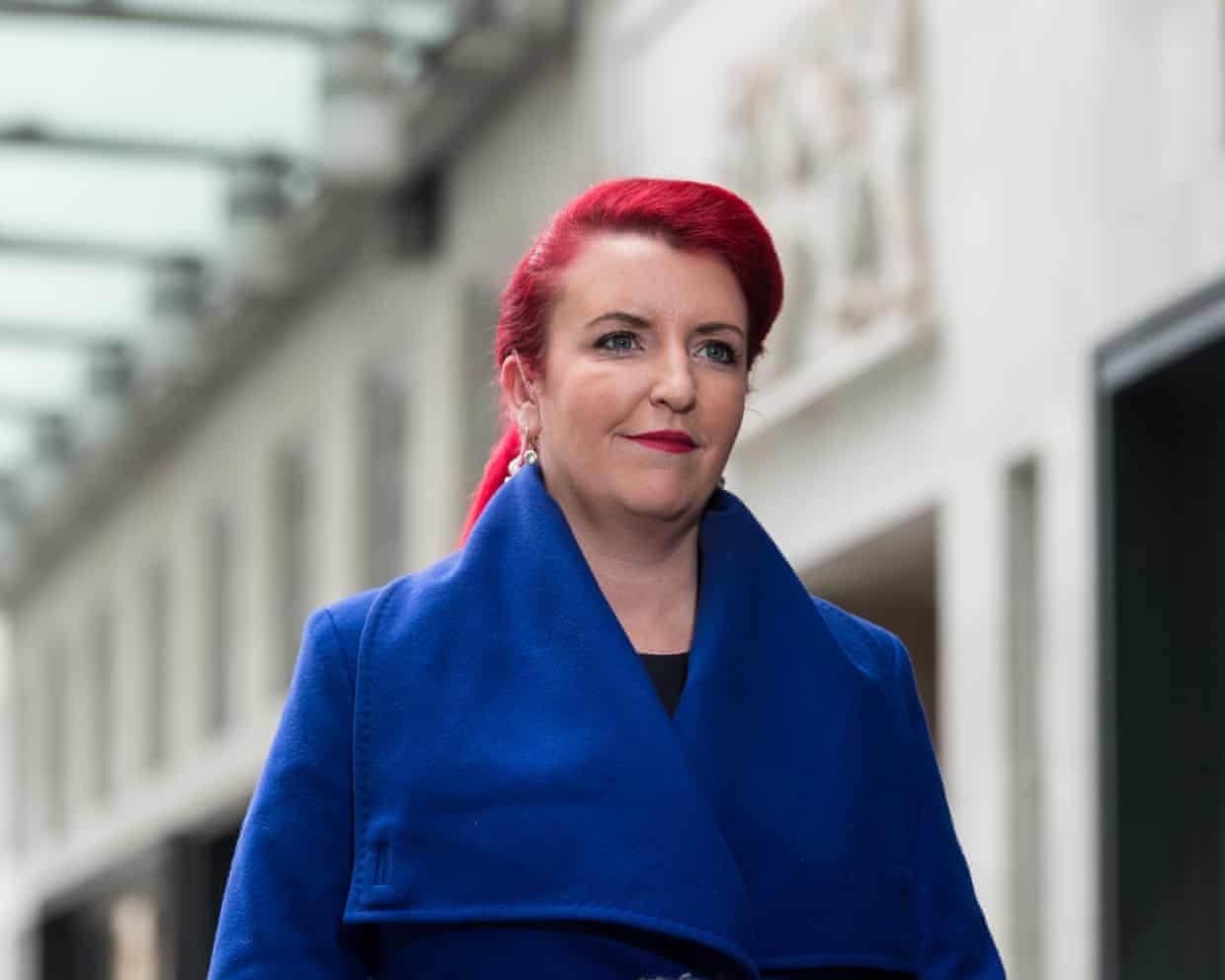
Labour MPs revive ‘desperately needed’ soft left group to take on Reform
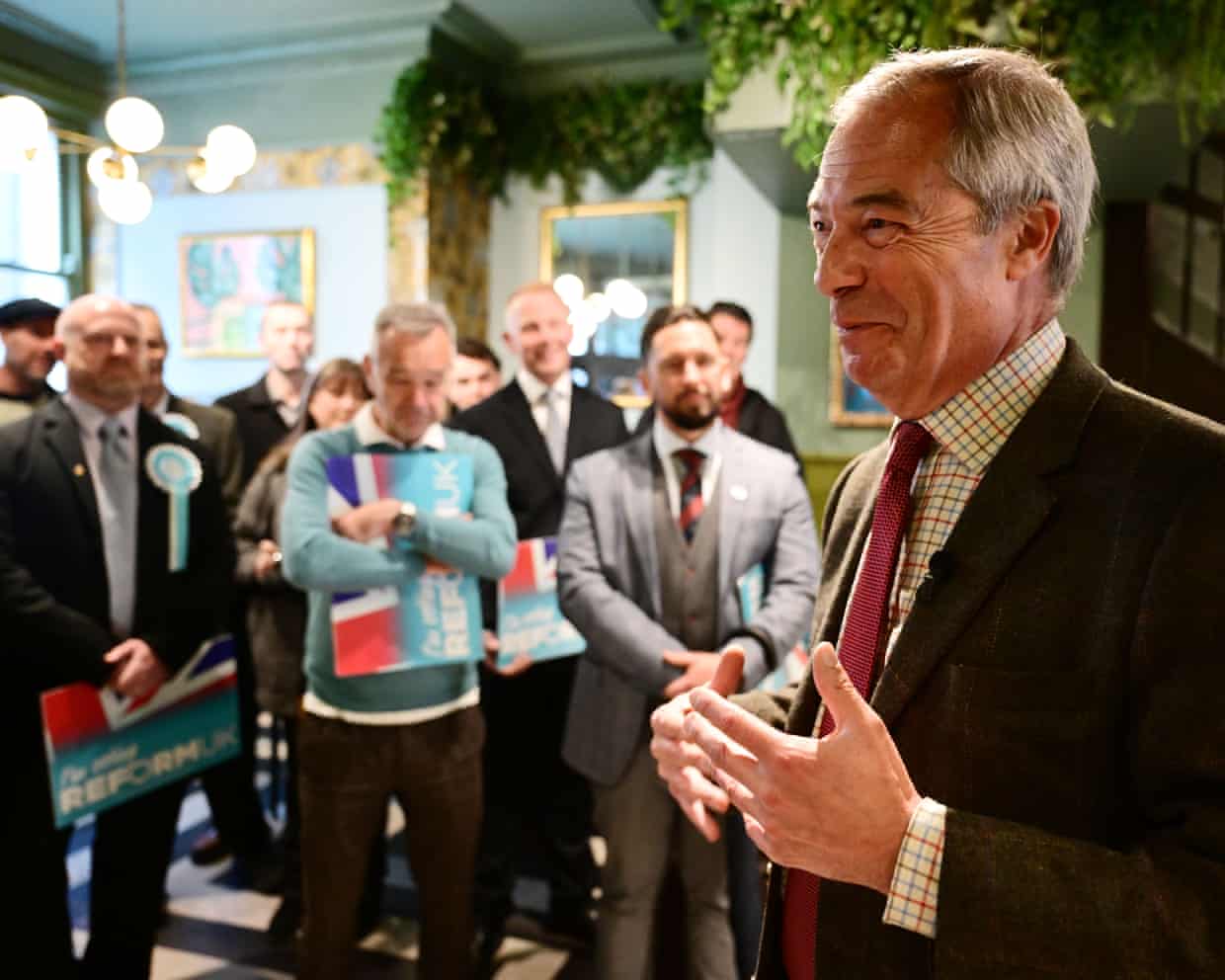
Lancashire’s Reform-run council plans to close care homes and day centres